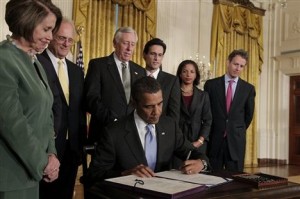 Asked about the�fiscal cliff�s impact�on foreign perceptions of the US, David Rothkopf, a former Clinton official, quipped: �If Lindsay Lohan were arrested again tomorrow, how much would it change your opinion of her?� The cliff is a domestic crisis of choice rather than of necessity so it is still possible to make light of it. The same cannot be said of Barack Obama�s overseas inbox.
Asked about the�fiscal cliff�s impact�on foreign perceptions of the US, David Rothkopf, a former Clinton official, quipped: �If Lindsay Lohan were arrested again tomorrow, how much would it change your opinion of her?� The cliff is a domestic crisis of choice rather than of necessity so it is still possible to make light of it. The same cannot be said of Barack Obama�s overseas inbox.At a moment of acute Washington navel gazing, Mr�Obama�faces an ominous range of uninvented threats from around the world. Whether 2013 turns out to be the year of Iran, Syria, Egypt, North Korea or Afghanistan, or a mix of the above, they march to their own time. One or two, notably Iran, could be time bombs. Alas, the fracas over�Susan Rice�s withdrawal�from consideration as secretary of state last week suggests Mr Obama will be distracted for some time by Washington�s clock � the one that is stuck at 11.59pm.
Mr Obama is this week likely to announce�John Kerry�as his choice to replace Hillary Clinton. But even the smoothest nomination will not go through the Senate until January. Foreign diplomats chafing at the Do Not Disturb sign hanging outside the White House for much of this year find it is still there six weeks after the election. Even at the price of jettisoning his most trusted foreign policy adviser, Mr Obama is trying to conserve all his leverage for the cliff and beyond. Most importantly, it is swallowing his time.
On Iran, in particular, there is little to waste. Among Washington�s foreign policy luminaries, it is hard to find one who claims to know the Obama administration�s strategy. Some speculate that the White House may have already established a back channel dialogue with Tehran led by someone like Thomas Pickering, the veteran state department envoy. If so, it would be reassuring. But this is a hope rather than an estimate. Others worry that Mr Obama lacks a real strategy to communicate.
This is not a concern about benign drift. Next month�Benjamin Netanyahu�will almost certainly be re-elected as Israel�s prime minister and claim a mandate to ensure that 2013 will be �the year we confront Iran� � as he reiterated last week. During the US election, Mr Obama somehow persuaded Mr Netanyahu to observe the Do Not Disturb sign. It is safe to assume he will be disrupting Mr Obama�s sleep from next month onwards. Yet it is unclear whether the US president will be in a position to moderate Mr Netanyahu�s desired pace of events.
The date on which Israel determines Iran has crossed the red line to weapons-grade uranium enrichment capability obviously matters. Estimates currently range from March to December. But it matters even more whether Mr Obama�s administration will by then have laid the groundwork for any realistic alternative to war. Unlike selecting a military strike from the Pentagon�s menu of options, Mr Obama cannot press a button to create an alternative � namely a strategy to contain a nuclear Iran. This would require diplomacy of Kissingerian complexity. Those who know Mr Obama best find it hard to imagine that in practice he would exercise the military option to which he has implicitly committed himself. If a US attack on Iran went wrong, or events went out of control, it could wreck everything else on his agenda, including the US economic recovery. It could also ruin attempts to stabilise Syria and hopes of nudging President�Mohamed Morsi�s Egypt in a semi-democratic direction. Not to mention what remains of unity in Iraq and Afghanistan. Or the pivot to Asia.
Even if an attack on Iran went as hoped, it would only be likely to delay its nuclear programme by a couple of years. And it would probably harden Iran�s resolve. As they say, knowledge cannot be bombed. Yet Mr Obama�s on-again/off-again record of Middle East diplomacy offers little reassurance he is preparing the kind of effort that might enable him to avert America�s third war with a Muslim country in a decade. This concern will only grow alongside the fiscal cliff in the coming weeks.
Those hoping war will be averted point to Mr Kerry�s record in opposing the invasion of Iraq (in spite of his having originally voted to authorise it in 2002). They also highlight the credentials of Chuck Hagel, the former Republican senator, and a possible next Pentagon chief, who also broke with George W. Bush after the Iraq invasion. A similarly cautious profile applies to Tom Donilon, Mr Obama�s national security adviser, who is thought likely to remain in his job.
But this may be to read too much into Mr Obama�s likely second-term appointments. Unlike the drumbeat for war with Iraq, pressure for a strike on Iran does not come principally from Washington. Yet the US is the only country with the power to prevent it from happening. Creating a situation in which US-Iran dialogue becomes possible � bilaterally, or in larger forums � poses one kind of test for Mr Obama. Putting in place a US security guarantee for Saudi Arabia, Egypt, Turkey and others were he to decide on nuclear containment would pose another altogether. Neither Ayatollah Khamenei nor Mr Netanyahu can be easily outmanoeuvred. Serious groundwork will be required. A lot will ride on how urgently and effectively Mr Obama�s new team can get to work.
By Financial Times
The Iran Project is not responsible for the content of quoted articles.










